Ear eczema is a skin condition that can cause discomfort, itchiness, and irritation on or around the ears. It can affect daily life and lead to complications like infections if left untreated. Whether you’re experiencing dry, flaky skin behind your ears, redness in the ear canal, or recurring irritation from triggers, understanding ear eczema is the first step toward relief.
At Online Chemist, Gorleston, Great Yarmouth we’re here to support you. We not only provide essential treatments for ear eczema but also offer online doctor consultations to help you manage your symptoms with expert advice. Additionally, our professional ear wax removal services using ear stringing ensure your ears are healthy and clear, creating an optimal environment for healing.
This page is your comprehensive guide to understanding, preventing, and treating ear eczema. Whether you’re looking for advice on identifying triggers, tips for soothing irritation, or treatments tailored to your needs, we’ve got you covered.
Take control of your ear health today. Browse our treatment options or consult with our online doctors to find the solution that’s right for you. Together, let’s make ear eczema a thing of the past!
Struggling with itchy, flaky, or irritated ears? We offer a wide range of effective treatments for ear eczema designed to soothe, heal, and protect your skin. From moisturisers to prescription creams, our products are carefully selected to help manage and treat your ear eczema effectively.
Shop now for high-quality ear eczema treatments and start your journey to healthier, more comfortable skin today.
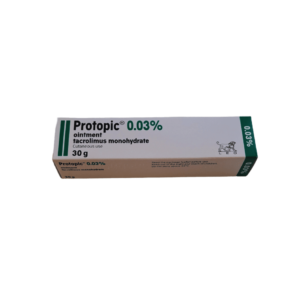
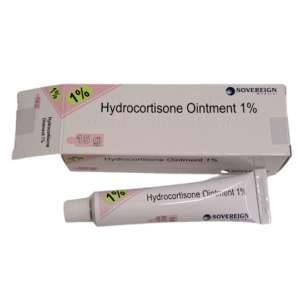
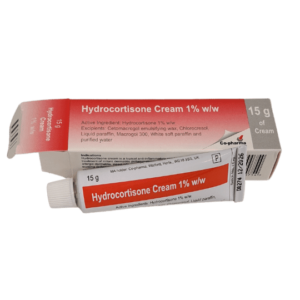
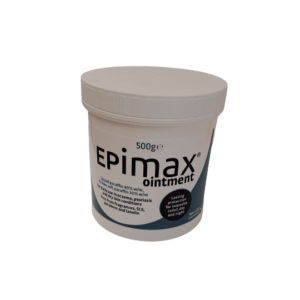
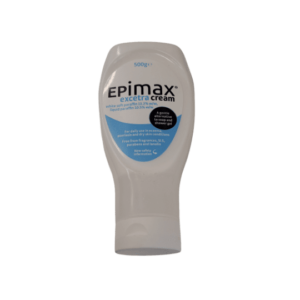
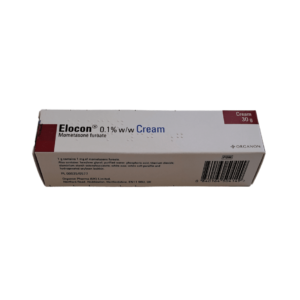
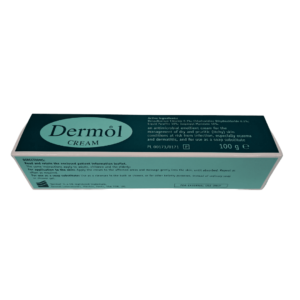
Ear eczema is a skin condition that affects the delicate skin on or around the ears, causing symptoms like dryness, redness, itching, and flaking. It can occur on the outer ear, in the ear canal, or even behind the ears, making it an uncomfortable and sometimes frustrating condition to manage.
There are several types of ear eczema, including:
Although ear eczema isn’t contagious, it can significantly impact your quality of life by interfering with daily activities and even leading to infections if the skin becomes cracked or broken.
At Online Chemist, we understand the challenges of managing ear eczema. That’s why we provide effective treatment options, from prescription remedies to over-the-counter solutions, and offer online doctor consultations to guide you every step of the way.
Ear eczema can develop for various reasons, often influenced by environmental, genetic, or lifestyle factors. Understanding the causes is crucial to managing and preventing flare-ups effectively. Here are the most common triggers:
Both ear eczema and psoriasis can cause irritation and discomfort in or around the ears, but they are distinct conditions with different causes, symptoms, and treatments. Understanding these differences is essential for choosing the right treatment approach.
Ear Eczema:
Psoriasis:
Ear Eczema:
Psoriasis:
Ear Eczema:
Psoriasis:
If you notice persistent irritation in or around your ears, consult a healthcare professional. A dermatologist can diagnose the condition based on its appearance and your symptoms, and they may recommend a biopsy for confirmation.
At Online Chemist, we offer online doctor consultations to help you determine whether your ear issues are caused by eczema, psoriasis, or something else entirely. From there, we provide tailored treatment options to address your specific needs.
Ear eczema can cause a range of uncomfortable symptoms that affect the skin in or around the ears. Recognizing these symptoms early is key to managing the condition effectively. Here’s what to watch for:
Itchiness:
Redness and Inflammation:
Dry, Flaky Skin:
Oozing or Crusting:
Pain or Tenderness:
Hearing Issues:
Signs of Infection:
Ear eczema can take several forms, each with unique causes and characteristics. Understanding the type of eczema you have can help in finding the most effective treatment. Here are the most common types:
Preventing ear eczema involves a proactive approach to avoid triggers, maintain healthy skin, and reduce the likelihood of flare-ups. Here are some practical tips to help keep your ears eczema-free:

Effectively managing ear eczema involves tailored treatments based on the severity, location, and type of eczema. Here’s a breakdown of the most common treatment options:
While ear eczema can often be managed with home care and over-the-counter treatments, there are situations where professional medical help is essential. Knowing when to consult a healthcare provider can prevent complications and ensure effective treatment.
At Online Chemist, we offer convenient solutions to address your concerns:
Don’t let ear eczema disrupt your daily life—reach out to our team today for expert advice and personalized treatment options.
Here are some frequently asked questions about ear eczema to address common concerns and provide quick, helpful answers.
Ear eczema can be caused by various factors, including:
Yes, if inflammation or discharge from eczema affects the ear canal, it may temporarily reduce hearing. Proper treatment and care can restore normal hearing.
No, ear eczema is not contagious. It cannot spread from person to person through contact.
Stress doesn’t directly cause ear eczema but can trigger or worsen flare-ups in individuals prone to eczema.
Seek medical help if:
Yes, for mild cases, but avoid prolonged use and apply only on the outer ear. For ear canal eczema, consult a doctor for appropriate ear drops.

Ear eczema can be a frustrating condition, but with the right knowledge, care, and treatment, it’s manageable. By understanding the causes, recognizing the symptoms, and addressing triggers, you can take control of your ear health and reduce flare-ups.
At Online Chemist, we’re committed to supporting you on your journey to healthier skin. Whether you need:
We’re here to help every step of the way.
Don’t let ear eczema hold you back from living comfortably. Explore our range of treatment options, book an online consultation, or visit our dedicated ear care resources to start your journey toward relief today.

Online Chemist
82 Middleton Road
Gorleston
Great Yarmouth
Norfolk, NR31 7AH
Phone: 01493 600610
Email: info@onlinechemistuk.net
Superintendent Pharmacist:
Obaidullah Zaman
BPharm, MPharm, PGDip (Pharmacy), MRPharmS, IP
GPhC Reg. Number: 2083409
Pharmacy Premises GPhC Reg. Number: 9011159
Monday 09:00 – 17:00
Tuesday 09:00 – 17:00
Wednesday 09:00 – 17:00
Thursday 09:00 – 17:00
Friday 09:00 – 17:00
Saturday Closed
Sunday Closed
Click here for driving directions
OnlineChemist is a trading name of Nomaz Limited.
Registered in England – 11349276.
© 2025 All rights reserved.